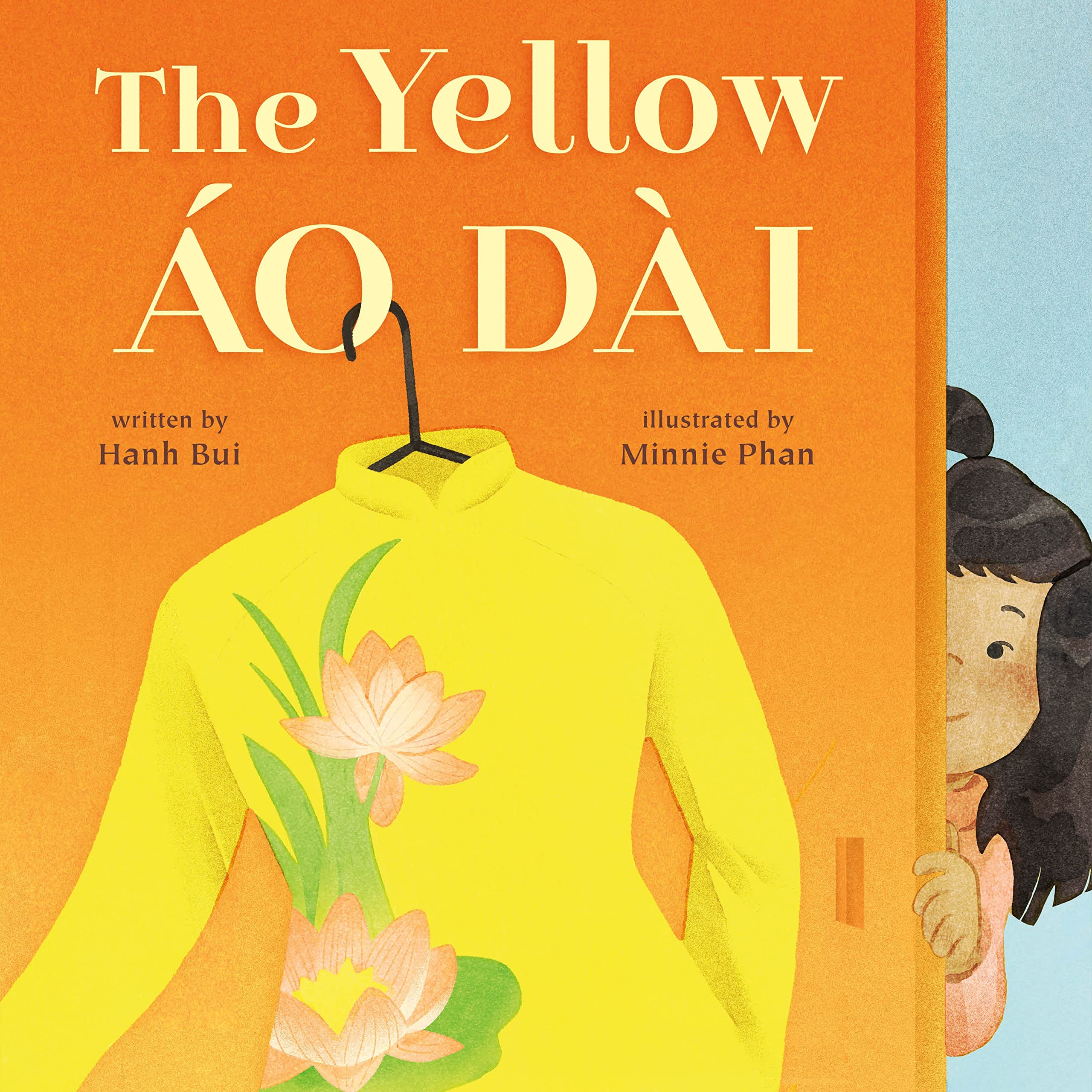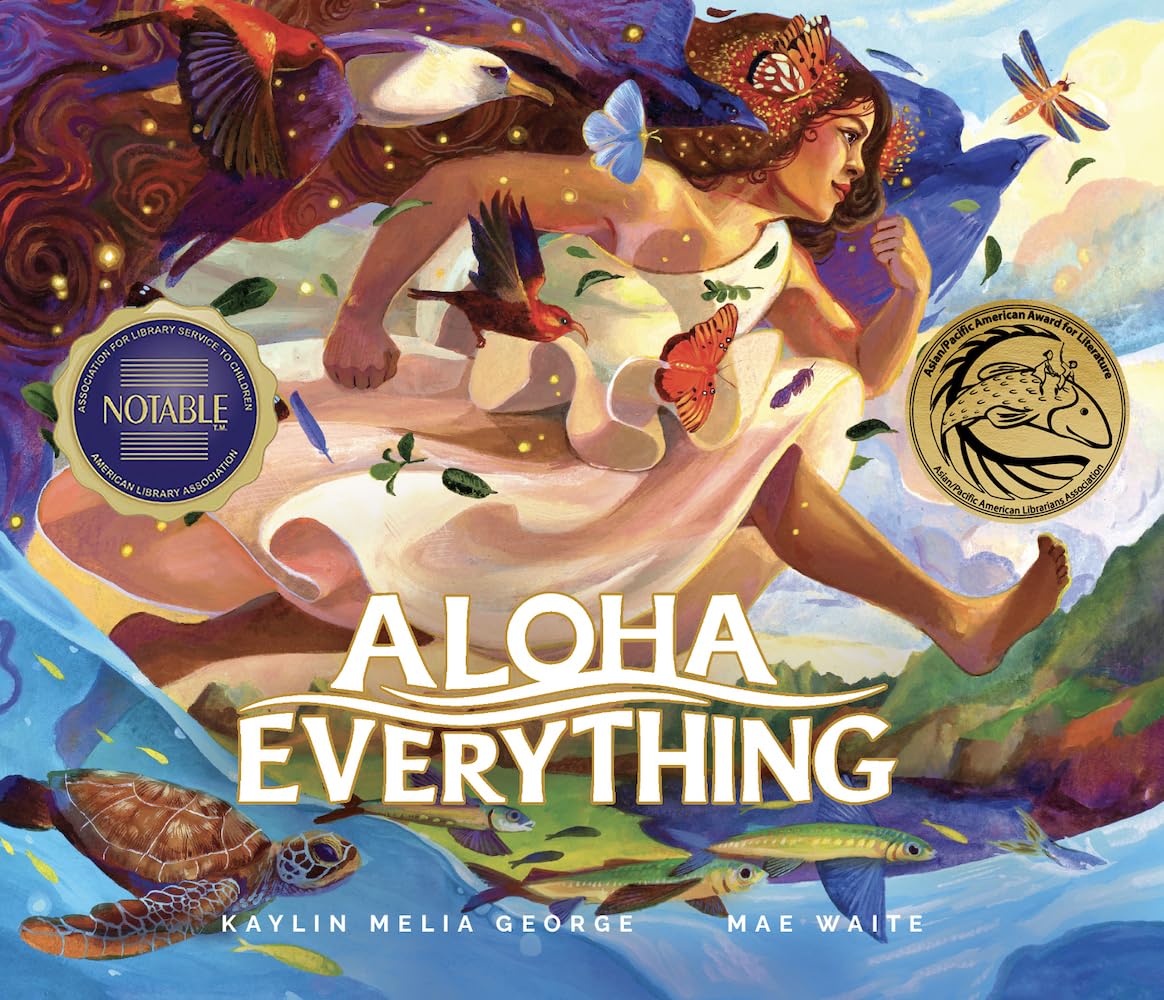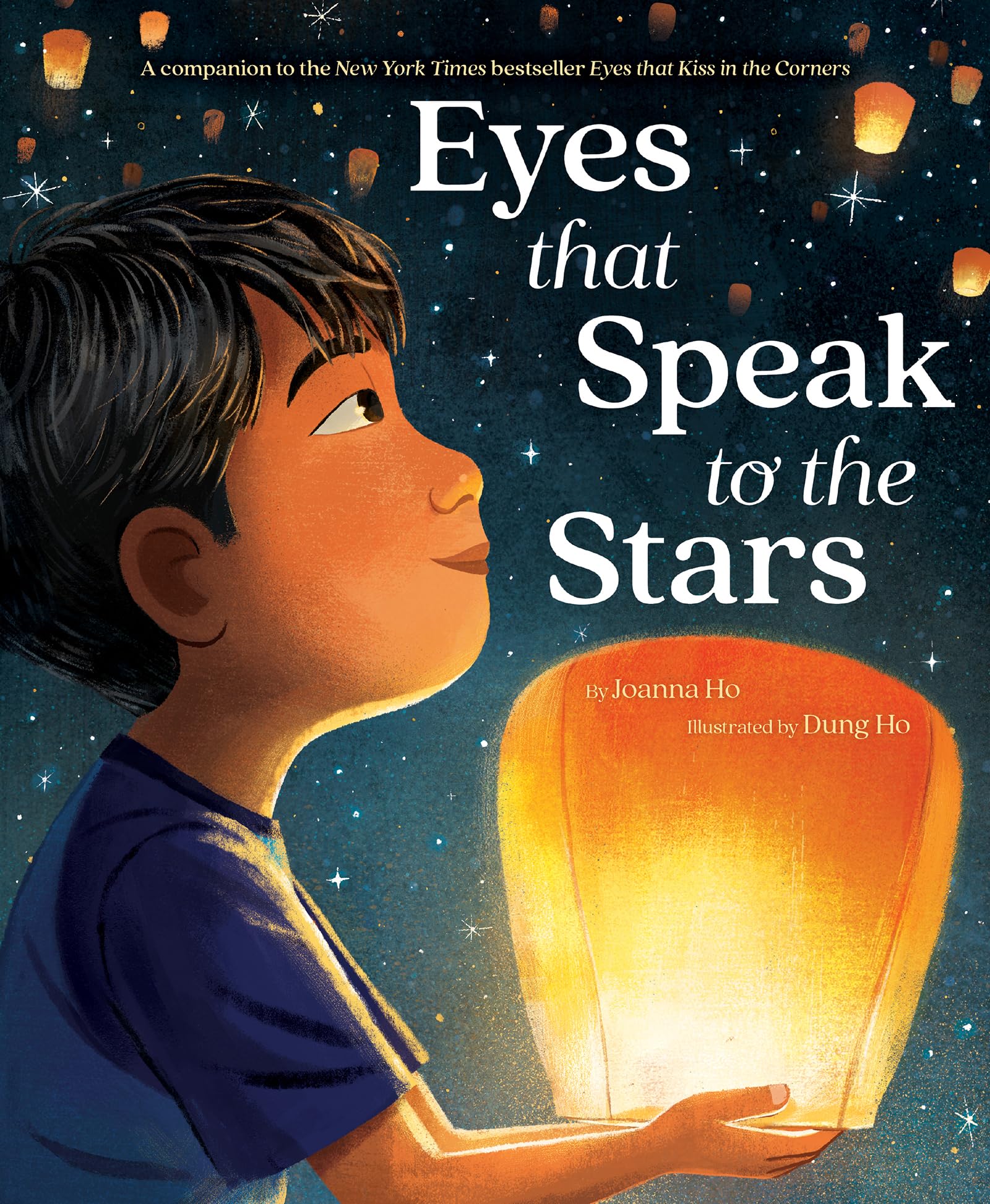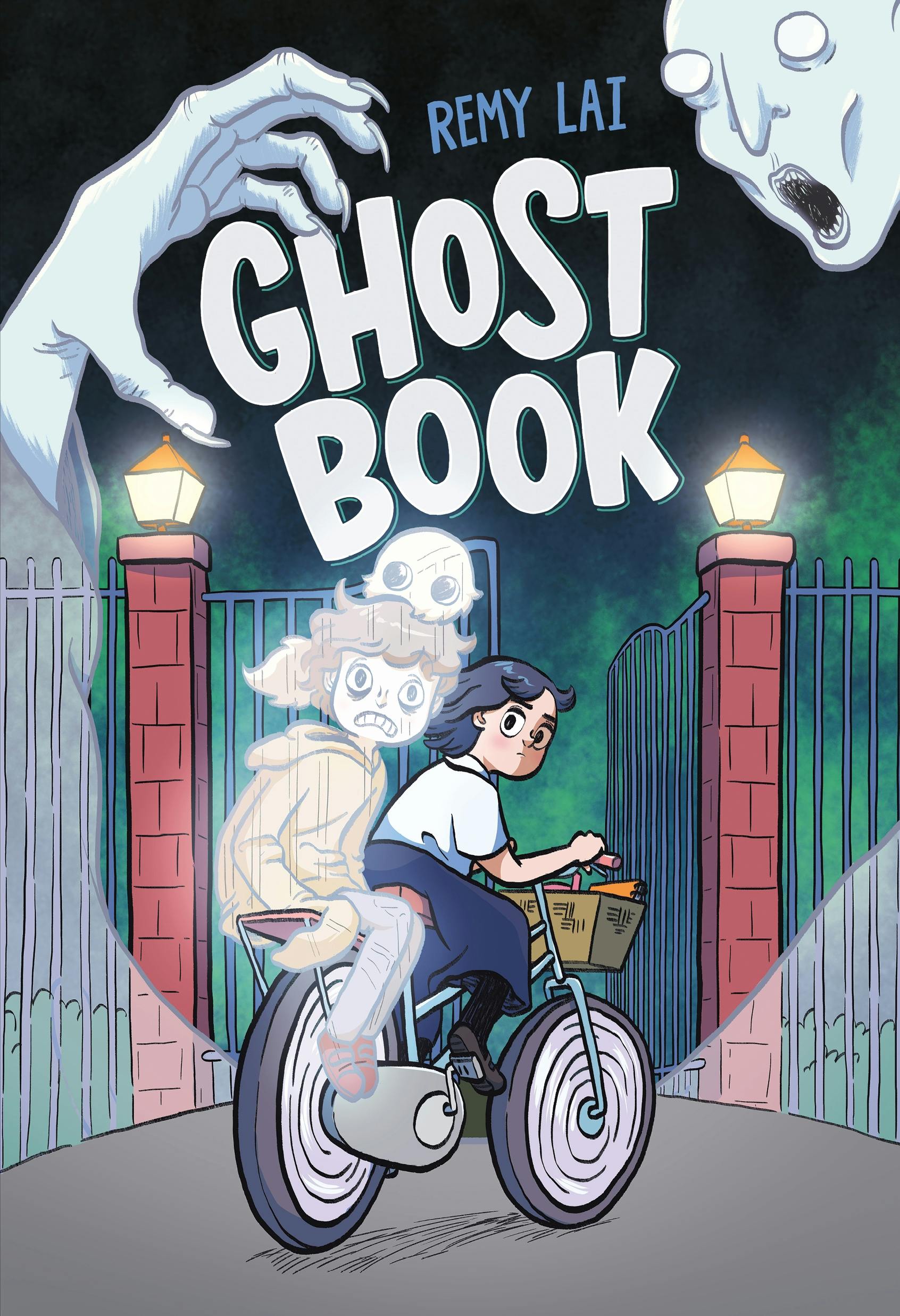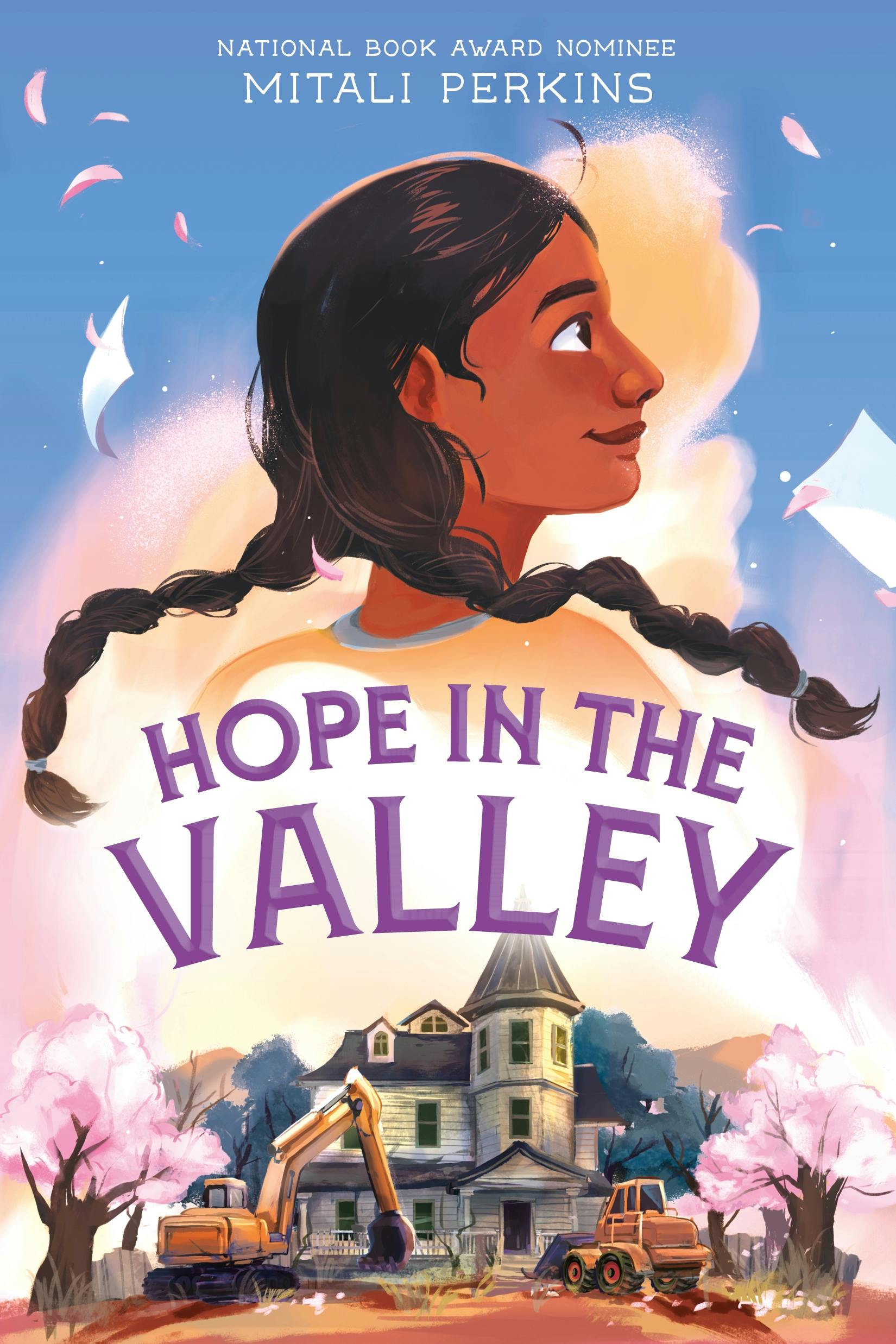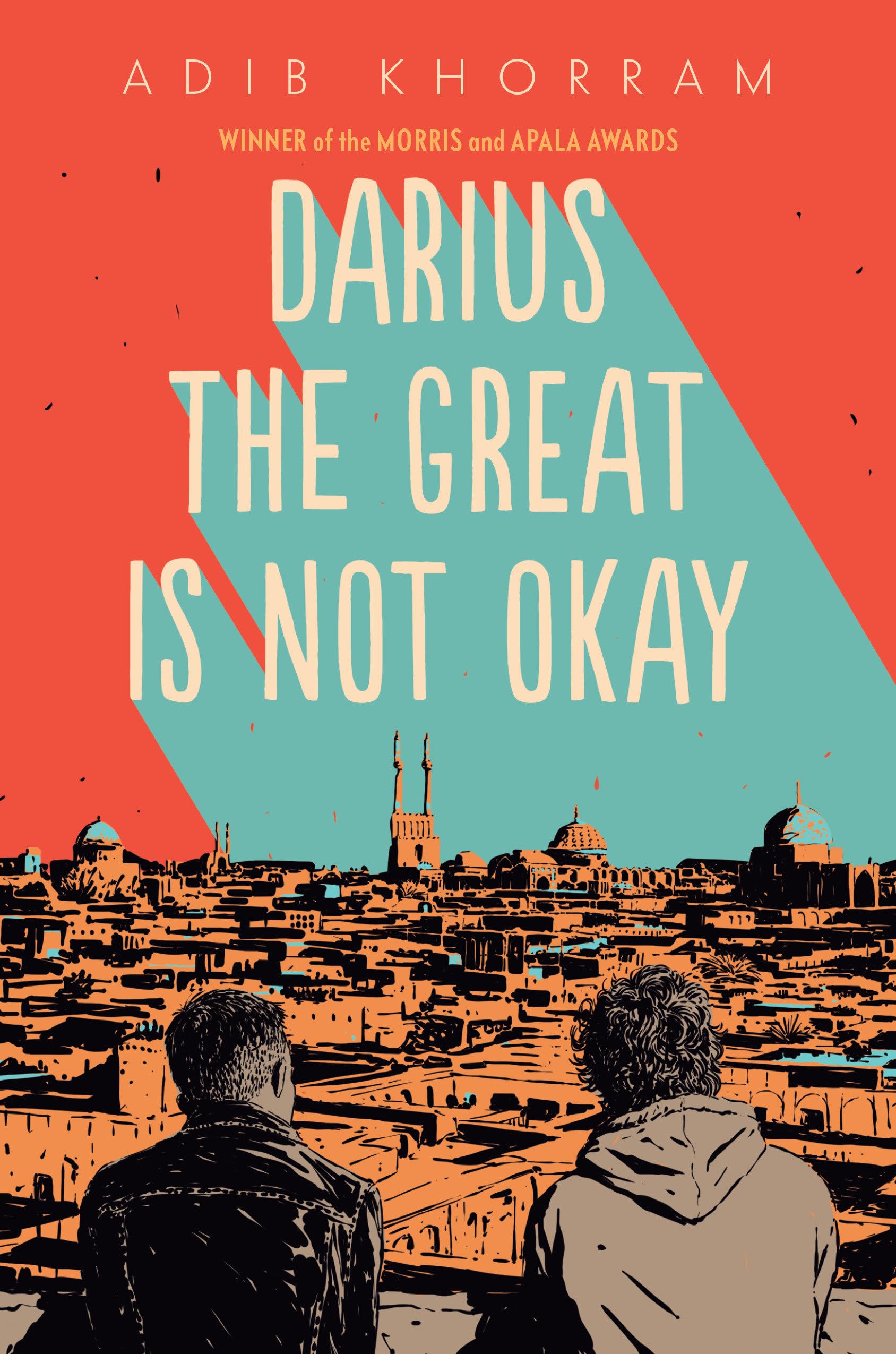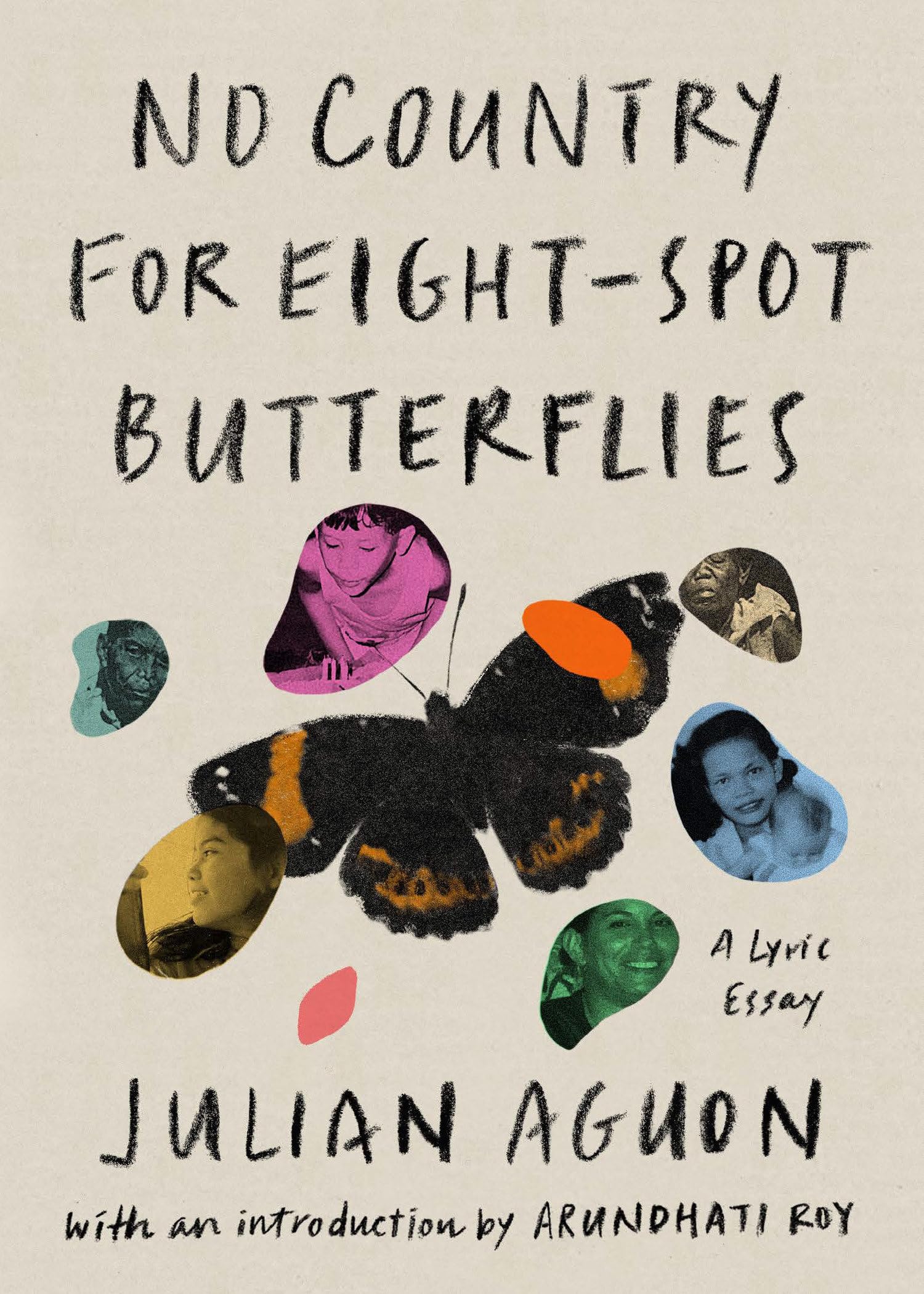Celebrate Asian American and Pacific Islander with these representative titles. Whether you want to read more books that reflect your own identity, experience, and perspective, or if you want to immerse yourself in something new we have something for everyone with picture books to adult fiction and memoirs.
Naliah is excited to perform a traditional Vietnamese Fan Dance at her school’s International Day. When she finds that her special áo dài no longer fits right, she goes to her mom’s closet to find another, a pretty yellow one―only to accidentally rip it while practicing her dance. She’s horrified to discover that this was a very special áo dài that her grandmother had worn to dance at the Mid-Autumn Festival in Vietnam.
But with a little help from her mom’s sewing kit and her grandmother’s loving legacy, Naliah learns not only how to mend the yellow áo dài but also how to believe in herself and make it her own
Since the day that Ano was born, her heart has been connected to her home. But, this adventurous child has a lot to learn! When Ano begins to dance hula — a storytelling dance form that carries the knowledge, history, and folklore of the Hawaiian people — Ano comes to understand the true meaning of aloha.
In the 15th century, four Mahu sail from Tahiti to Hawaii and share their gifts of science and healing with the people of Waikiki. The islanders return this gift with a monument of four boulders in their honor, which the Mahu imbue with healing powers before disappearing.
As time passes, foreigners inhabit the island and the once-sacred stones are forgotten until the 1960s. Though the true story of these stones was not fully recovered, the power of the Mahu still calls out to those who pass by them at Waikiki Beach today.
Ruhi finds her sister getting ready for the weekly family gathering and carefully tying a sari for the first time. When Kayra emerges from her room, Ruhi is in awe of her sister and can’t wait to wear a sari too. But her mother and sister say she’s too young to carry all that fabric without tripping.
Ruhi fears that she’s missing out on all the fun that her older sister and the aunties are having upstairs while she’s in the basement with the other kids, so Ruhi comes up with an idea to loosen the adults up and bring everyone together: have a sari dance party!
A young boy comes to recognize his own power and ability to change the future. When a friend at school creates a hurtful drawing, the boy turns to his family for comfort. He realizes that his eyes rise to the skies and speak to the stars, shine like sunlit rays, and glimpse trails of light from those who came before—in fact, his eyes are like his father’s, his agong’s, and his little brother’s, and they are visionary.
When Lily and her family move in with her sick grandmother, a magical tiger straight out of her halmoni’s Korean folktales arrives, prompting Lily to unravel a secret family history. Long, long ago, Halmoni stole something from the tigers. Now they want it back. And when one of the tigers approaches Lily with a deal–return what her grandmother stole in exchange for Halmoni’s health–Lily is tempted to agree. But deals with tigers are never what they seem! With the help of her sister and her new friend Ricky, Lily must find her voice…and the courage to face a tiger.
First-generation Filipino siblings JJ and Althea struggle to belong at school. JJ wants to fit in with the crowd, while Althea wants to be accepted as she is. To make matters worse, they have to help their parents run the family food truck by dressing up as a dancing pig and passing out samples. Ugh! And their mom is always pointing out lessons from Filipino folklore — annoying tales they’ve heard again and again. But when witches, ogres, and other creatures from those same stories threaten their family, JJ and Althea realize that the folklore may be more real that they’d suspected. Can they embrace who they really are and save their family?
July Chen sees ghosts. But her dad insists ghosts aren’t real. So she pretends they don’t exist. Which is incredibly difficult now as it’s Hungry Ghost month, when the Gates of the Underworld open and dangerous ghosts run amok in the living world. When July saves a boy ghost from being devoured by a Hungry Ghost, he becomes her first ever friend. Except William is not a ghost. He’s a wandering soul wavering between life and death. As the new friends embark on an adventure to return William to his body, they unearth a ghastly truth―for William to live, July must die.
When Anna goes back to Hawaiʻi to visit her Tūtū, she has no interest in becoming the heir to her family’s history; she’s set on having a touristy, fun vacation. But when Anna accidentally insults Pele the fire goddess by destroying her lehua blossom, a giant hawk swoops in and kidnaps her best friend, and she quickly learns just how real these moʻolelo are. In order to save her friends and family, Anna must now battle mythical creatures, team up with demigods and talking bats, and evade the traps Pele hurls her way.
For if Anna hopes to undo the curse, she will have to dig deep into her Hawaiian roots and learn to embrace all of who she is.
When Tessa is finally allowed to go to Tokyo, it’s only to join her grandpa’s retiree aerobic class with none other than Jin, the 13-yearold neighbor who pretends he’s too cool to talk to Tessa. Their disastrous forced hangout comes crashing to a halt when Tessa and Jin break the Miyata family’s precious heirloom—accidentally releasing the malicious samurai god Taira Masakado and discovering a hidden part of the city where gods and mythological creatures walk among humans—including their new companion, a mythical nine-tailed fox who may be more trouble than he is help.
Tessa and Jin must now work together to stop Taira Masakado before he traps them—and the rest of Tokyo—under his command, forever.
Twelve-year-old Indian-American Pandita Paul doesn’t like change. She’s not ready to start middle school and leave the comforts of childhood behind. Most of all, Pandita doesn’t want to feel like she’s leaving her mother, who died a few years ago, behind. After a falling out with her best friend, Pandita is planning to spend most of her summer break reading and writing in her favorite secret space: the abandoned but majestic mansion across the street.
But then the unthinkable happens. The town announces that the old home will be bulldozed in favor of new―maybe affordable―housing. With her family on opposing sides of the issue, Pandita must find her voice―and the strength to move on―in order to give her community hope.
Darius Kellner speaks better Klingon than Farsi, and he knows more about Hobbit social cues than Persian ones. He’s about to take his first-ever trip to Iran, and it’s pretty overwhelming—especially when he’s also dealing with clinical depression, a disapproving dad, and a chronically anemic social life. In Iran, he gets to know his ailing but still formidable grandfather, his loving grandmother, and the rest of his mom’s family for the first time. And he meets Sohrab, the boy next door who changes everything.
Sohrab calls him Darioush—the original Persian version of his name—and Darius has never felt more like himself than he does now that he’s Darioush to Sohrab. When it’s time to go home to America, he’ll have to find a way to be Darioush on his own.
Seventeen-year-old Lily Hu can’t remember exactly when the question took root, but the answer was in full bloom the moment she and Kathleen Miller walked under the flashing neon sign of a lesbian bar called the Telegraph Club.
America in 1954 is not a safe place for two girls to fall in love, especially not in Chinatown. Red-Scare paranoia threatens everyone, including Chinese Americans like Lily. With deportation looming over her father—despite his hard-won citizenship—Lily and Kath risk everything to let their love see the light of day.
Tien and his mother may come from different cultures—she’s an immigrant from Vietnam still struggling with English; he’s been raised in America—but through the fairy tales he checks out from the local library, those differences are erased.
But as much as Tien’s mother’s English continues to improve as he reads her tales of love, loss, and travel across distant shores, there’s one conversation that still eludes him—how to come out to her and his father. Is there even a way to explain what he’s going through in Vietnamese? And without a way to reveal his hidden self, how will his parents ever accept him?
Hanalei of Tamarind is the cherished daughter of an old island family. But when her father steals a seadragon egg meant for an ailing princess, she is forced into a life of exile. In the years that follow, Hanalei finds solace in studying the majestic seadragons that roam the Nominomi Sea. Until, one day, an encounter with a female dragon offers her what she desires most. A chance to return home, and to right a terrible wrong.
Samahtitamahenele, Sam, is the last remaining prince of Tamarind. But he can never inherit the throne, for Tamarind is a matriarchal society. With his mother ill and his grandmother nearing the end of her reign. Sam is left with two to marry, or to find a cure for the sickness that has plagued his mother for ten long years. When a childhood companion returns from exile, she brings with her something he has not felt in a very long time – hope.
But Hanalei and Sam are not the only ones searching for the dragonfruit. And as they battle enemies both near and far, there is another danger they cannot escape…that of the dragonfruit itself.
Tao is an immigrant fortune teller, traveling between villages with just her trusty mule for company. She only tells “small” fortunes: whether it will hail next week; which boy the barmaid will kiss; when the cow will calve. She knows from bitter experience that big fortunes come with big consequences…
Even if it’s a lonely life, it’s better than the one she left behind. But a small fortune unexpectedly becomes something more when a (semi) reformed thief and an ex-mercenary recruit her into their desperate search for a lost child. Soon, they’re joined by a baker with a “knead” for adventure, and—of course—a slightly magical cat.
Tao starts down a new path with companions as big-hearted as her fortunes are small. But as she lowers her walls, the shadows of her past close in—and she’ll have to decide whether to risk everything to preserve the family she never thought she could have.
Daisy Patel is a software engineer who understands lists and logic better than bosses and boyfriends. With her life all planned out, and no interest in love, the one thing she can’t give her family is the marriage they expect. Left with few options, she asks her childhood crush to be her decoy fiance.
Liam Murphy is a venture capitalist with something to prove. When he learns that his inheritance is contingent on being married, he realizes his best friend’s little sister has the perfect solution to his problem. A marriage of convenience will get Daisy’s matchmaking relatives off her back and fulfill the terms of his late grandfather’s will. If only he hadn’t broken her tender teenage heart nine years ago…
Sparks fly when Daisy and Liam go on a series of dates to legitimize their fake relationship. Too late, they realize that very little is convenient about their arrangement. History and chemistry aren’t about to follow the rules of this engagement.
In bracing poetry and compelling prose, Aguon weaves together stories from his childhood in the villages of Guam with searing political commentary about matters ranging from nuclear weapons to global warming. Undertaking the work of bearing witness, wrestling with the most pressing questions of the modern day, and reckoning with the challenge of truth-telling in an era of rampant obfuscation, he culls from his own life experiences—from losing his father to pancreatic cancer to working for Mother Teresa to an edifying chance encounter with Sherman Alexie—to illuminate a collective path out of the darkness.
After a harrowing flight, Queenie, her younger brother, and their elderly Chinese father arrive in the United States from the Philippines. They’re here to finally reunite with Queenie’s Filipina mother, who has been working as a nurse in Brooklyn for the past few years—building a life that everyone hopes will set them up for better prospects. But her mother is not the same woman she was in the Philippines: Something in her face is different, almost hardened, and she seems so American already.
Queenie, on the cusp of adulthood, has big dreams of attending college, of spending her days immersed in the pages of books. But there is not enough money for her and her brother to both be in school, so first she must work. Queenie rotates through jobs and settles, tentatively, into her new life, but her brother begins to withdraw and act out, and her father’s anger swells. As the pressures of assimilation compound, and the fissures within her family deepen into fractures, Queenie is left suspended between two countries, two identities, and two parents.
Binding these essays together is Hong’s theory of “minor feelings.” As the daughter of Korean immigrants, Cathy Park Hong grew up steeped in shame, suspicion, and melancholy. She would later understand that these “minor feelings” occur when American optimism contradicts your own reality—when you believe the lies you’re told about your own racial identity. Minor feelings are not small, they’re dissonant—and in their tension Hong finds the key to the questions that haunt her.


